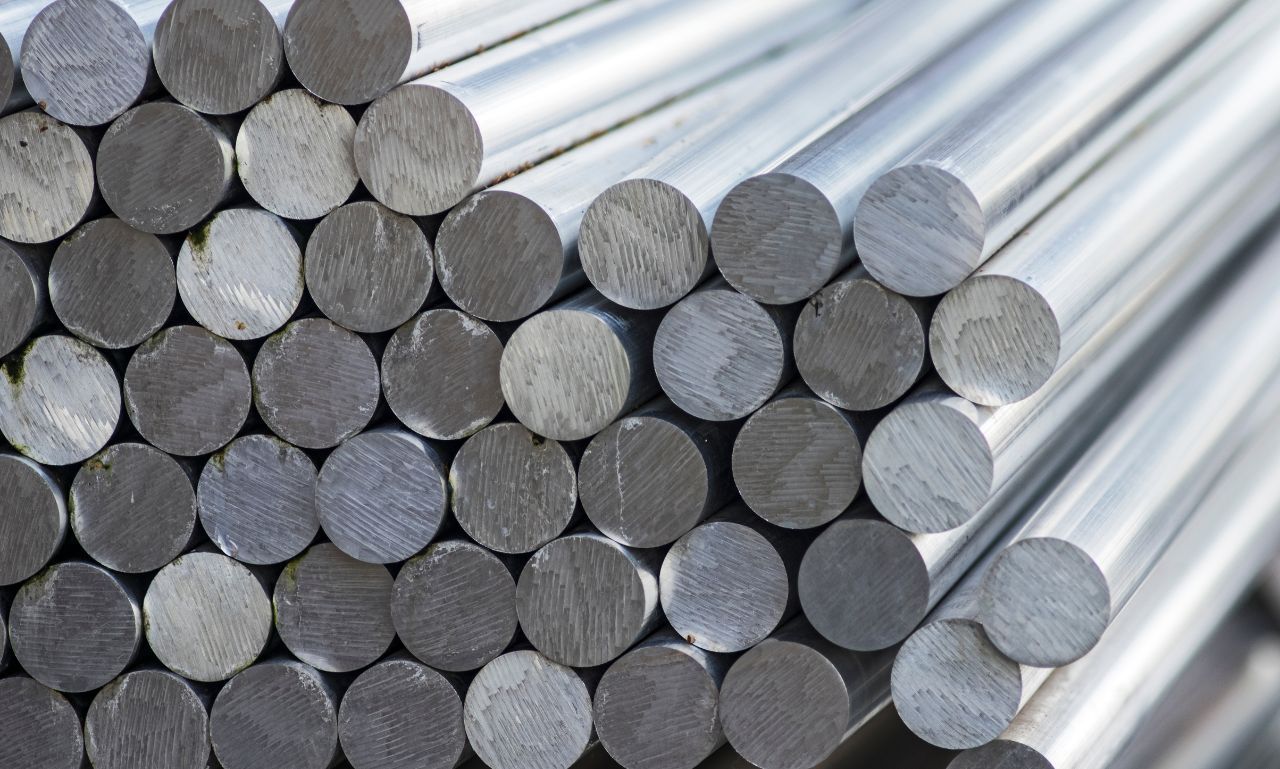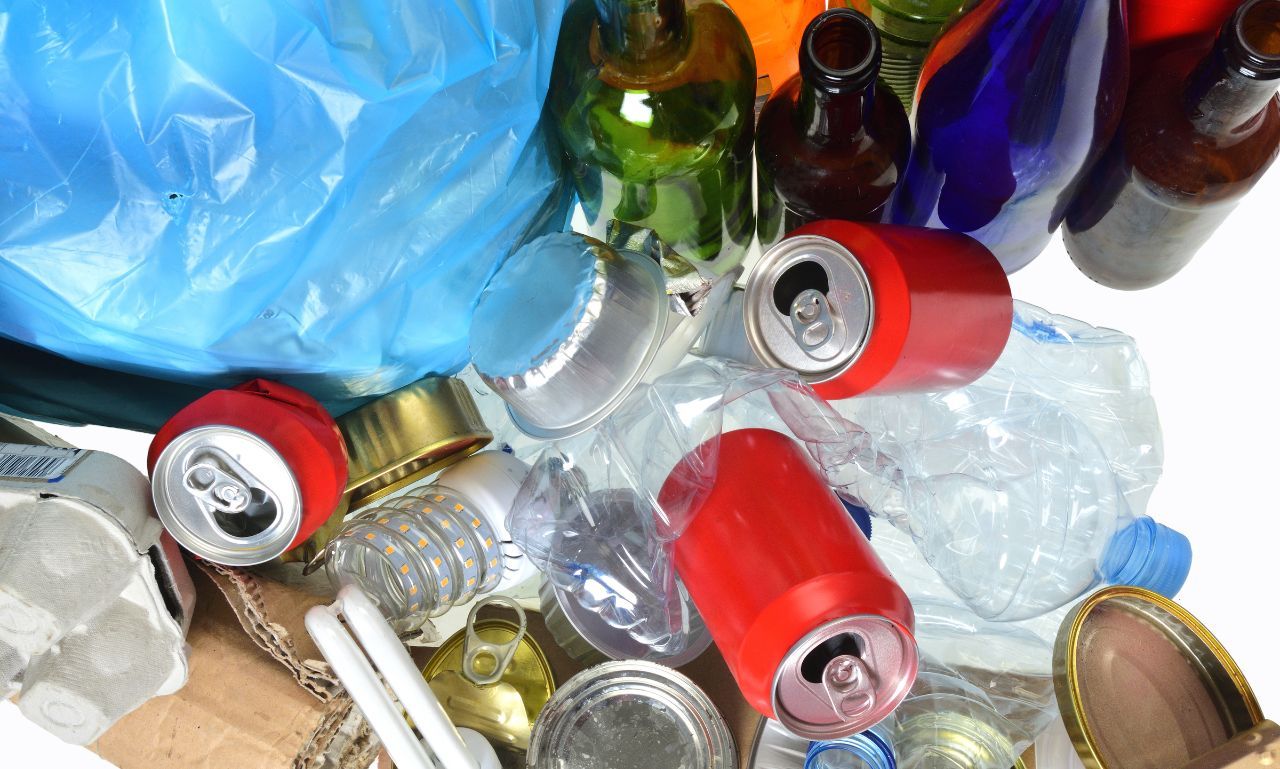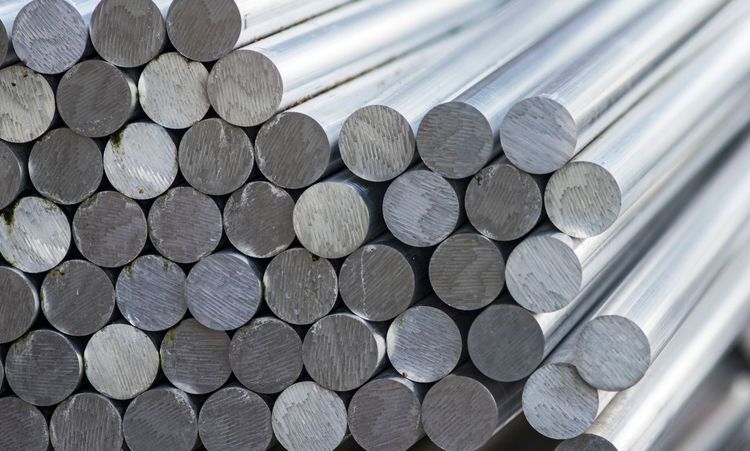Have you ever looked at a discarded appliance or a pile of old wires and wondered, "Could I make money from this?" You absolutely can! Venturing into the world of scrapping can be surprisingly profitable, and it's easier than you might think. Whether you're looking to declutter your home, embark on a new side hustle, or simply contribute to a greener planet, understanding what are things that can be scrapped for money can open up a world of opportunity. This comprehensive guide dives deep into the lucrative realm of scrapping, equipping you with the knowledge and insights to turn your unwanted metal items into a profitable venture.
High-Value Metals to Scrap
Now that you understand the basic categories, let's delve into specific metals that can translate into significant profits for savvy scrappers.
Aluminum

Aluminum is a ubiquitous metal found in countless household items. It's lightweight, easy to recycle, and holds its value well in the scrap market.
Common Sources of Aluminum Scrap:
- Beverage Cans: The most common source, often collected through curbside recycling programs.
- Aluminum Siding: Older homes may have aluminum siding that can be scrapped during renovations.
- Window Frames: Aluminum is a popular material for window frames due to its durability and low maintenance.
- Car Parts: Engine blocks, transmission casings, and wheels often contain significant amounts of aluminum.
Tips for Scrapping Aluminum:
- Separate by Grade: Different aluminum alloys have varying scrap values. Research the different grades and separate them accordingly.
- Crush Cans: Compressing cans reduces their volume, saving space and potentially increasing your payout at the scrap yard.
Copper
Copper is a highly sought-after metal due to its exceptional electrical conductivity and resistance to corrosion. Its value fluctuates with market demand, but it consistently ranks among the most profitable scrap metals.
Common Sources of Copper Scrap:
- Wiring: Electrical wiring, both old and new, contains valuable copper.
- Pipes: Older homes may have copper pipes that can be salvaged during plumbing upgrades.
- Motors: Electric motors, found in appliances and power tools, often contain copper windings.
- Computer Components: Motherboards, CPUs, and other computer parts may contain copper.
Tips for Scrapping Copper:
- Strip Insulation: Remove any insulation or plastic coatings from copper wires to maximize their value.
- Sort by Grade: Like aluminum, copper comes in different grades. Identify and separate them for optimal pricing.
Brass
Brass, an alloy of copper and zinc, is prized for its durability, corrosion resistance, and attractive golden hue. It's commonly found in decorative items, plumbing fixtures, and musical instruments.
Common Sources of Brass Scrap:
- Plumbing Fixtures: Faucets, valves, and pipe fittings often contain brass.
- Decorative Items: Old lamps, candlesticks, and door handles can be valuable sources of brass.
- Musical Instruments: Trumpets, trombones, and saxophones are often made of brass.
Tips for Scrapping Brass:
- Distinguish from Plated Items: Some items may only be brass-plated. Use a magnet to test; if it sticks, it's not solid brass.
- Remove Non-Brass Components: Separate any non-brass parts, such as plastic or steel, before taking it to the scrap yard.
Stainless Steel
Stainless steel is an alloy of iron, chromium, and other elements, renowned for its resistance to rust and corrosion. While not as valuable as copper or aluminum, it can still fetch a decent price at scrap yards.
Common Sources of Stainless Steel Scrap:
- Kitchen Appliances: Sinks, refrigerators, and dishwashers often contain stainless steel components.
- Cookware: Pots, pans, and cutlery made from stainless steel can be scrapped.
- Automotive Parts: Exhaust systems and some car trim are often made of stainless steel.
Tips for Scrapping Stainless Steel:
- Identify the Grade: There are various grades of stainless steel, each with different properties and scrap values.
- Separate from Other Metals: Mixing stainless steel with other metals can lower its overall value.
Precious Metals (e.g., Platinum)
While less common in household items, precious metals like gold, silver, and platinum can yield significant profits if you know where to look.
Common Sources of Precious Metal Scrap:
- Jewelry: Old or broken jewelry, even if it's not in pristine condition, can contain valuable precious metals.
- Electronics: Circuit boards, connectors, and other electronic components may contain small amounts of gold, silver, or platinum.
- Dental Work: Gold teeth and fillings can be surprisingly valuable.
Tips for Scrapping Precious Metals:
- Seek Professional Refiners: It's best to sell precious metal scrap to reputable refiners who can accurately assess its value.
- Understand Purity Levels: The purity of precious metals is measured in karats (gold) or fineness (silver). Higher purity translates to higher value.
Common Household Items for Scrapping
Now that you have a good grasp of valuable metals, let's explore specific household items that can be scrapped for profit:
Old Appliances
Appliances nearing the end of their lifespan are treasure troves for scrappers. They contain a variety of metals, including steel, copper, aluminum, and sometimes even precious metals.
Appliances Ripe for Scrapping:
- Refrigerators: Contain copper tubing, aluminum, and steel.
- Washing Machines: Offer steel drums, motors with copper windings, and potentially some aluminum.
- Dryers: Similar to washing machines, they contain steel drums, motors, and heating elements.
- Ovens and Stoves: Often have steel bodies, copper wiring, and aluminum knobs or trim.
- Dishwashers: Contain steel tubs, motors, and spray arms.
Tips for Scrapping Appliances:
- Discharge Refrigerant Safely: Refrigerators and air conditioners contain refrigerant chemicals that must be properly recovered and disposed of by a certified technician.
- Remove Hazardous Components: Appliances may contain mercury switches or other hazardous materials. Dispose of them responsibly.
Tools and Hardware
Your garage or workshop can be a goldmine for scrap metal. Old tools, hardware, and building materials can often be scrapped for a tidy profit.
Scrappable Tools and Hardware:
- Hand Tools: Wrenches, screwdrivers, hammers, and pliers often contain steel and sometimes other metals.
- Power Tools: Motors, casings, and cords can contain copper, aluminum, and steel.
- Nails, Screws, and Fasteners: These are typically made of steel and can be collected in bulk.
- Gutters and Downspouts: Often made of aluminum, they can be valuable when scrapped in large quantities.
Tips for Scraping Tools and Hardware:
- Separate by Metal Type: Sort different metals into separate containers for easier processing at the scrap yard.
- Remove Non-Metal Parts: Discard any plastic handles, rubber grips, or wooden components.
Computer Parts
In our increasingly digital age, electronic waste is a growing concern. Fortunately, many computer parts contain valuable metals that can be recycled.
Scrapable Computer Parts:
- Hard Drives: Contain magnets that often use neodymium, a valuable rare earth metal.
- Motherboards: Have gold-plated connectors and other components that can be refined for precious metals.
- CPUs: May contain small amounts of gold and other precious metals.
- Power Supplies: Often contain copper wiring and transformers.
Tips for Scrapping Computer Parts:
- Data Security: Before scrapping hard drives, ensure all personal data is securely erased.
- Partner with E-Waste Recyclers: Some components require specialized recycling processes. Consider partnering with certified e-waste recyclers.
Cans and Containers

While aluminum cans are widely recycled through curbside programs, other types of cans and containers can also be scrapped for profit.
Scrappable Cans and Containers:
- Tin Cans: While often lined with plastic or other materials, the steel base can be scrapped.
- Paint Cans: Empty paint cans can often be recycled; however, check local regulations for proper disposal.
- Aerosol Cans: These can be hazardous if not completely empty. Check with your local recycling center for safe disposal options.
Tips for Scrapping Cans and Containers:
- Empty and Clean Thoroughly: Remove all contents and rinse thoroughly to avoid contamination.
- Check Local Regulations: Some areas have specific guidelines for recycling certain types of containers.
Safety Tips for Metal Scrapping
Scrapping is profitable, but safety is key. Here are some essential safety measures to follow:
Safety Measures
- Wear Protective Gear: Gloves, safety glasses, and sturdy boots are a must. Scrapping involves handling sharp edges and heavy metals, so protecting yourself should be your number one priority.
- Handle Sharp Edges Carefully: Appliances, pipes, and other scrap items can have sharp edges—always take care when handling them to avoid cuts.
- Discharge Electronics Properly: Never attempt to take apart an appliance while it’s still plugged in. Disconnect all power and consider the risk of residual charges in capacitors. It's always a good idea to have some electrical knowledge before diving into scrapping electronics.
- Lifting Techniques: Scrapping often involves heavy lifting. Use proper lifting techniques to avoid injuring your back. When in doubt, ask for help.
Work in a Well-Ventilated Area: Many metals can release harmful dust and particles during the scrapping process. Always work outdoors or in a well-ventilated space.
Conclusion
In a world grappling with resource depletion and environmental concerns, understanding what are things that can be scrapped for money empowers you to turn trash into treasure while making a positive impact. By embracing scrapping as a sustainable practice, you contribute to a greener future while reaping the financial rewards of this often-overlooked industry. So, roll up your sleeves, grab your gloves, and embark on your scrapping journey today!




